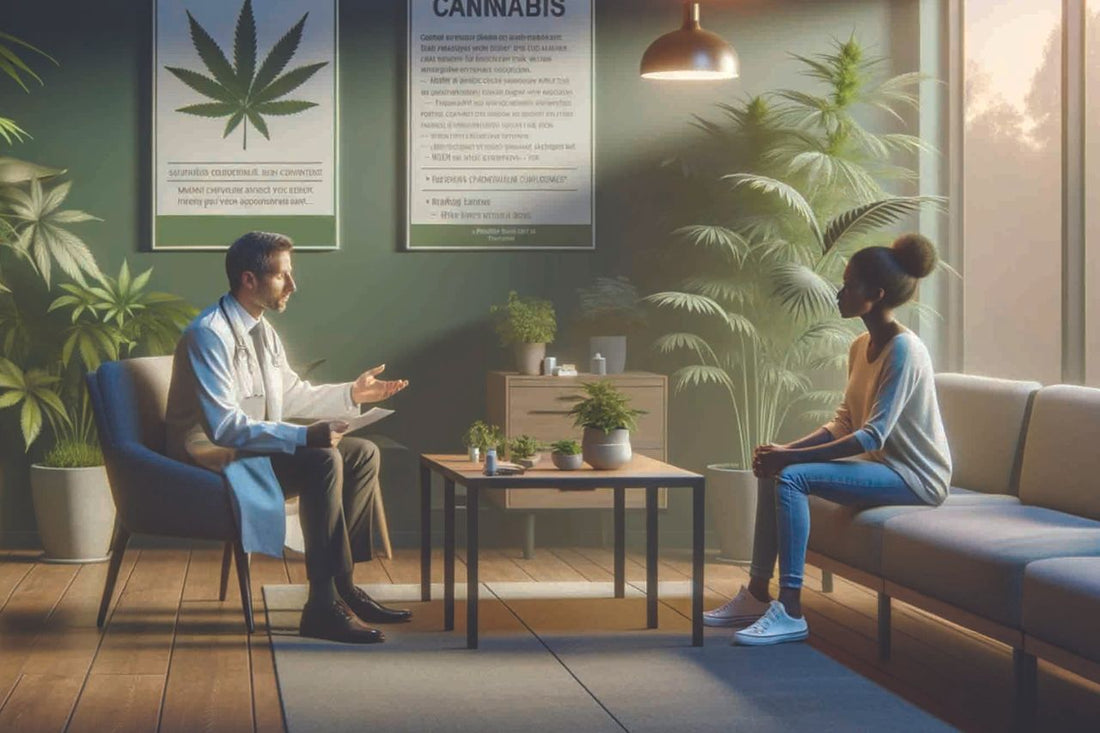Exploring the impact of medical cannabis on anxiety medication reduction
In a groundbreaking observational study, patients grappling with anxiety disorders have shown remarkable improvement in symptoms and a significant number have reduced their dependency on prescription anti-anxiety medications after incorporating medical cannabis into their treatment.
This pivotal research, published in the Journal of Affective Disorders Reports, sheds light on the potential of medical cannabis as a complementary therapy for those suffering from anxiety-related conditions and post-traumatic stress disorder (PTSD).
The study’s methodology and findings
The study, conducted by researchers from the Philadelphia College of Osteopathic Medicine, closely monitored a group of nearly 100 patients.
All participants were newly recommended by physicians to join the state's medical cannabis access program, providing a unique opportunity to observe the effects of medical cannabis on individuals with anxiety or PTSD. Baseline symptoms were recorded, followed by a subsequent assessment after three months of medical cannabis use.
The findings were consistent with previous research, indicating a substantial decrease in generalized anxiety symptoms over the trial period. Notably, among those who were on prescribed anxiolytics, 32 percent reported a reduction in their medication use by the third month. This decrease was most prevalent among patients taking benzodiazepines, a common class of drugs used to treat anxiety.
Comparative analysis with other studies
These results align with numerous other studies that have observed a decrease in the use of various prescription medications, such as opioids, anxiolytics, and sleep aids, following the introduction of medical marijuana products into patients' regimens.
The study's authors concluded that the findings provide additional preliminary evidence supporting the use of medical marijuana (MM) to manage anxiety and PTSD symptoms.
Understanding the role of medical cannabis in anxiety and PTSD treatment
Medical cannabis has been at the forefront of many discussions surrounding alternative treatments for anxiety and PTSD. The full text of the study, titled "Anxiety severity and prescription medication utilization in first-time marijuana users," is available in the Journal of Affective Disorders Reports. For further reading on the subject, NORML's publication on cannabis and post-traumatic stress offers extensive insights.
Medical cannabis as a substitute for traditional medications
The potential of medical cannabis to act as a substitute for traditional medications is a significant aspect of this study. The implications of such a shift are vast, considering the side effects and dependency issues associated with long-term use of conventional anxiolytics.
The study's revelations suggest a promising alternative in medical cannabis, which may offer a safer and more sustainable option for managing anxiety and PTSD.
Broader implications for healthcare
The broader implications of these findings for healthcare are immense. As the medical community continues to explore and understand the benefits of medical cannabis, this study adds to the growing body of evidence that supports its use as a viable treatment option. It also opens up conversations about the need for more comprehensive studies and the potential reevaluation of current treatment protocols for anxiety and PTSD.
My final thoughts
While the study does not advocate for the abandonment of traditional treatments, it does highlight the importance of considering medical cannabis as part of a holistic approach to managing anxiety and PTSD.
The reduction in the use of anxiolytics among patients in the study is a testament to the therapeutic potential of medical cannabis and its role in the future of mental health treatment.
Despite the promising results, the study acknowledges the need for further research to fully understand the long-term effects and efficacy of medical cannabis in treating anxiety disorders. It also calls for a more nuanced approach to its application, taking into account the individual needs and responses of patients.
The study's findings are a beacon of hope for those seeking alternative treatments for anxiety and PTSD. As medical cannabis continues to gain recognition as a legitimate treatment option, it is essential for ongoing research to pave the way for its integration into standard healthcare practices.






